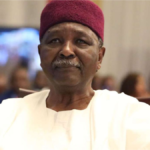Former President Olusegun Obasanjo has called on the National Assembly for an urgent legislative support in terms of a new bill to support people with kidney disease and enact laws on the emerging organ harvesting and trafficking in Nigeria.
Obasanjo spoke at the 36th Annual General Meeting (AGM) and Scientific Conference of the National Association of Nephrology with the theme: “Optimising Dialysis Therapy To Prolong Survival”, at the main auditorium of the Olusegun Obasanjo Presidential Library (OOPL) in Abeokuta, Ogun State.
Obasanjo highlighted four areas to address the burden and challenges in the management of kidney disease, even as he noted that several strategies could be followed at the same time.
He said, “From available reports, one out of seven, that is about 15 per cent of adult Nigerians, have kidney failure which cannot be reversed and is life-threatening if left untreated.
How Obasanjo ‘destroyed party supremacy’ in Nigeria revealed on Inside Sources
Police probe murder of 27-year-old man in Ogun
“I have also been informed that the prevalence of kidney failure in Africa is higher than anywhere else in the world, as an average African is four times more likely to develop kidney problems than a Caucasian or Mediterranean race.”
Obasanjo stated that the causes of the disease included “hypertension, diabetes, kidney infections, genetics, habitual consumption of undefined herbal medications, and analgesic abuse. The burden of chronic kidney disease is further exacerbated by the high prevalence of these risk factors. Late presentation is also a problem which further leads to increased morbidity and mortality.”
He noted that treatment must start with prevention and healthy lifestyles, while “in severe cases, apart from drugs, intervention by way of machine treatment (dialysis) or outright replacement (transplantation) are the way out.”
Obasanjo maintained that, “We also need to invest in local production of dialysis consumables to bring down the cost of dialysis care. Supporting dialysis and transplantation services for children not only improves health outcomes, but also reduces the need for Nigerians to seek these services abroad, saving foreign exchange. It fosters trust in the government, encourages local production of medications and dialysis materials, creates employment and enhances the country’s visibility in international healthcare organisations. Ultimately, strengthened policies can prevent unnecessary deaths, improve healthcare access and boost the nation’s healthcare infrastructure.
“Therefore, there is an urgent need for legislative support in terms of a new bill to support affected persons.
“Lastly, organ trafficking is an emerging issue in our environment, and I want to plead with agencies concerned to help in examining relevant laws, especially with regards to cadaveric donations, taking cognizance of our peculiar cultural and societal idiosyncrasies, and also laws guiding organs to be harvested from living donors.”

 Join Daily Trust WhatsApp Community For Quick Access To News and Happenings Around You.
Join Daily Trust WhatsApp Community For Quick Access To News and Happenings Around You.

